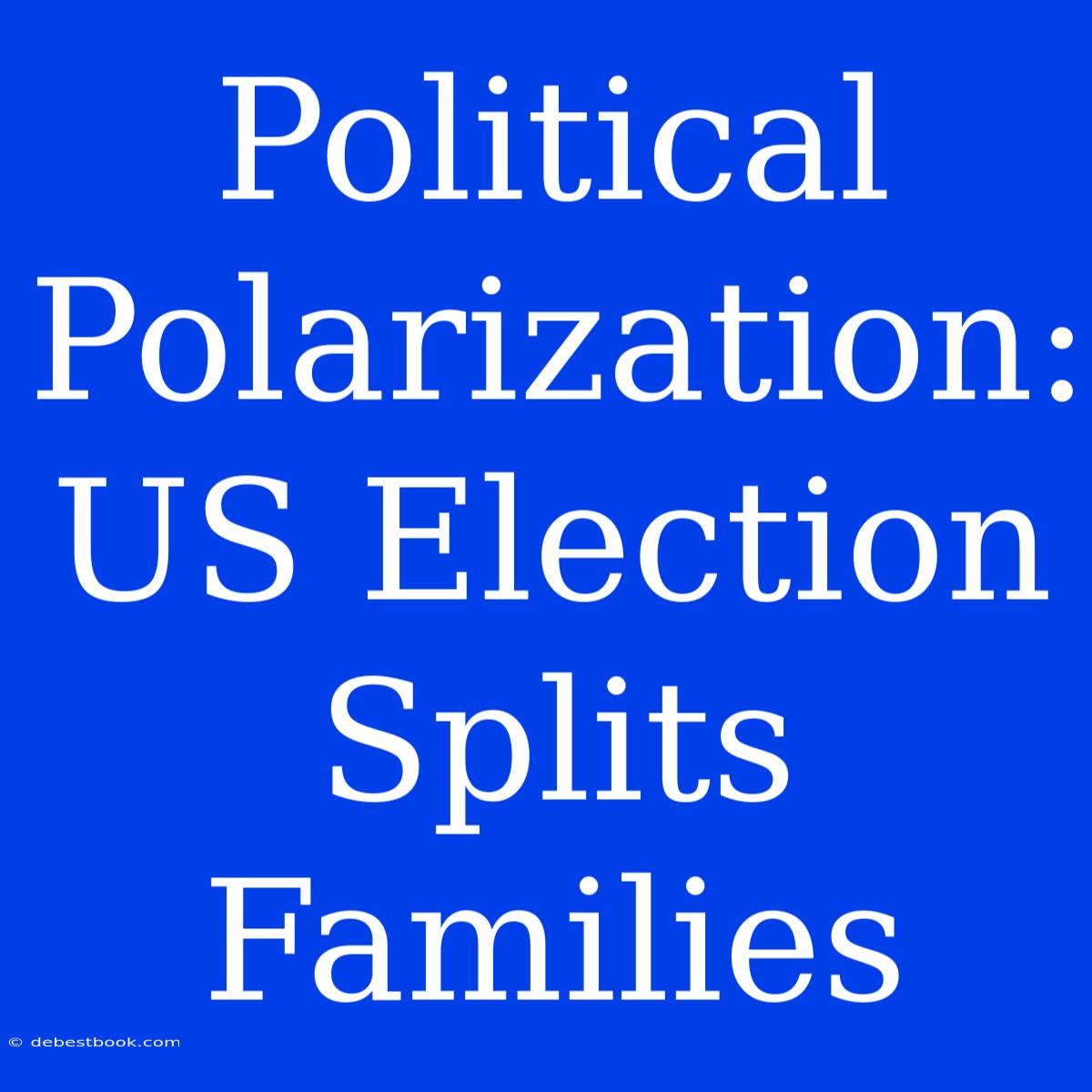Political Polarization: US Election Splits Families - A Nation Divided, Families Torn Apart
Is the US political landscape so divided that families are being torn apart? The answer, unfortunately, is a resounding yes. The 2020 US election highlighted a deep societal divide, with political polarization seeping into family dynamics and fracturing once-united households. Editor Note: The 2020 US election brought into sharp focus the growing problem of political polarization in the US, with many families struggling to navigate these divisions. Understanding this phenomenon is crucial, as it impacts not only individual lives but also the very fabric of American society.
This review examines the impact of political polarization on families in the US, analyzing the causes, consequences, and potential solutions. We'll delve into how political differences manifest within families, the psychological toll on individuals, and the strategies for mitigating these divisions. Understanding the complexities of this issue can help individuals navigate family relationships amidst political differences and contribute to fostering a more cohesive society.
Political Polarization: A Growing Divide
Political polarization refers to the widening gap between political ideologies and beliefs within a society. This trend is not unique to the US but has been particularly pronounced in recent years, fueled by several factors including:
- Increased Media Polarization: The rise of partisan media outlets and social media algorithms contributes to the formation of echo chambers, where individuals are exposed only to information that confirms their existing beliefs.
- Political Identity as a Defining Factor: Political ideology has become a strong component of personal identity, leading to a sense of belonging and a perception of "us vs. them."
- Growing Economic Inequality: Socioeconomic disparities contribute to political polarization, as different groups have varying interests and priorities.
The impact of political polarization on families is significant. It leads to:
- Strained Family Relationships: Political differences can create tension, conflict, and a sense of alienation within families.
- Communication Breakdown: Families may struggle to engage in meaningful conversations about politics, avoiding potentially divisive topics.
- Emotional Distress: Political differences can trigger strong emotions, leading to feelings of anger, anxiety, and sadness.
Navigating Political Polarization in Families
What are the steps individuals can take to navigate the challenges of political polarization in their families?
- Acknowledge Differences: The first step is to acknowledge that political differences exist and that it's okay to have different perspectives.
- Respect Boundaries: Recognize and respect the limits of discussion. Avoid bringing up sensitive topics that might trigger conflict.
- Focus on Common Ground: Emphasize shared values and interests. Find common ground to strengthen bonds despite political differences.
- Practice Empathy: Attempt to understand the perspective of family members with differing views, even if you disagree.
Key Takeaways:
| Aspect | Description |
|---|---|
| Increased Polarization | Widening gap in political beliefs across society |
| Family Tensions | Political differences strain family relationships |
| Communication Breakdown | Difficulties in engaging in political discussions |
| Emotional Distress | Political differences trigger strong emotions |
| Navigating Polarization | Acknowledge differences, respect boundaries, focus on common ground, practice empathy |
Embracing Dialogue and Finding Common Ground
Despite the challenges, political polarization is not insurmountable. Engaging in respectful dialogue, focusing on shared values, and finding common ground are crucial steps towards building bridges within families.
Editor Note: The 2020 US election showcased the importance of constructive dialogue and the need to find common ground.
This review provides a framework for understanding the complexities of political polarization in families. Recognizing its impact, acknowledging differences, and practicing empathy are essential steps in mitigating its negative consequences. While differences in political views may persist, fostering a sense of understanding and respect can help preserve family bonds despite political divisions.

